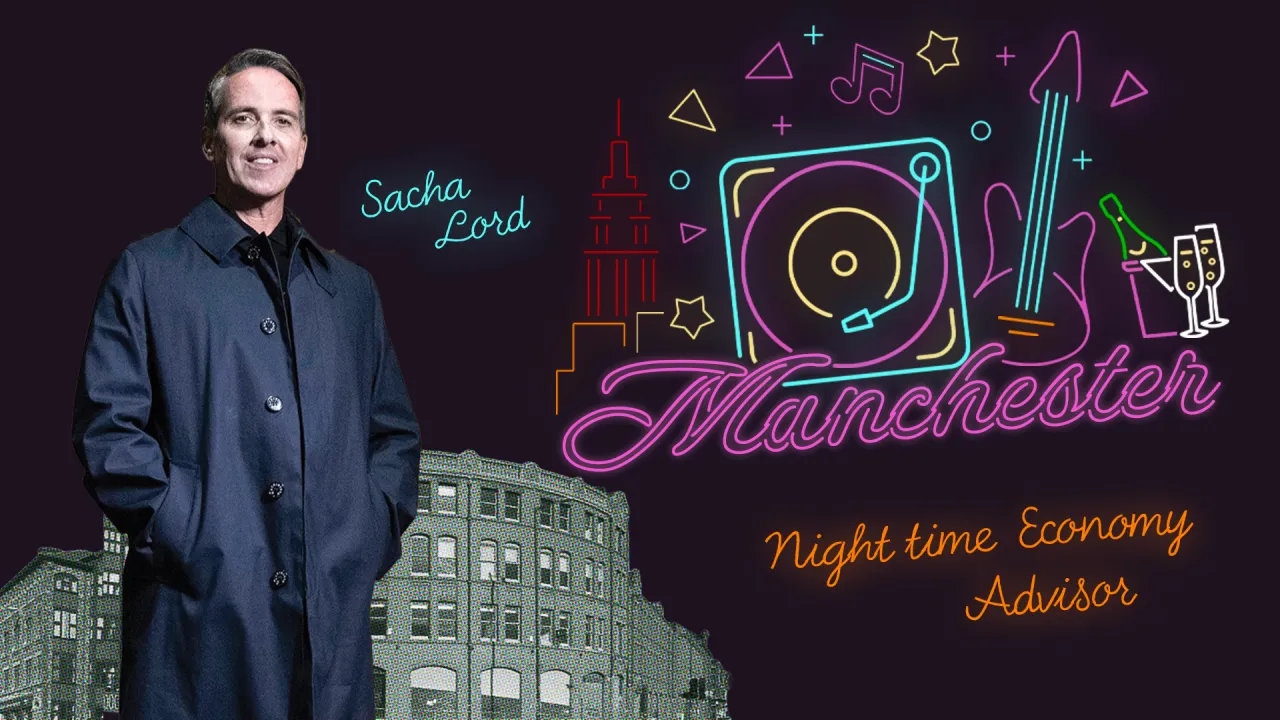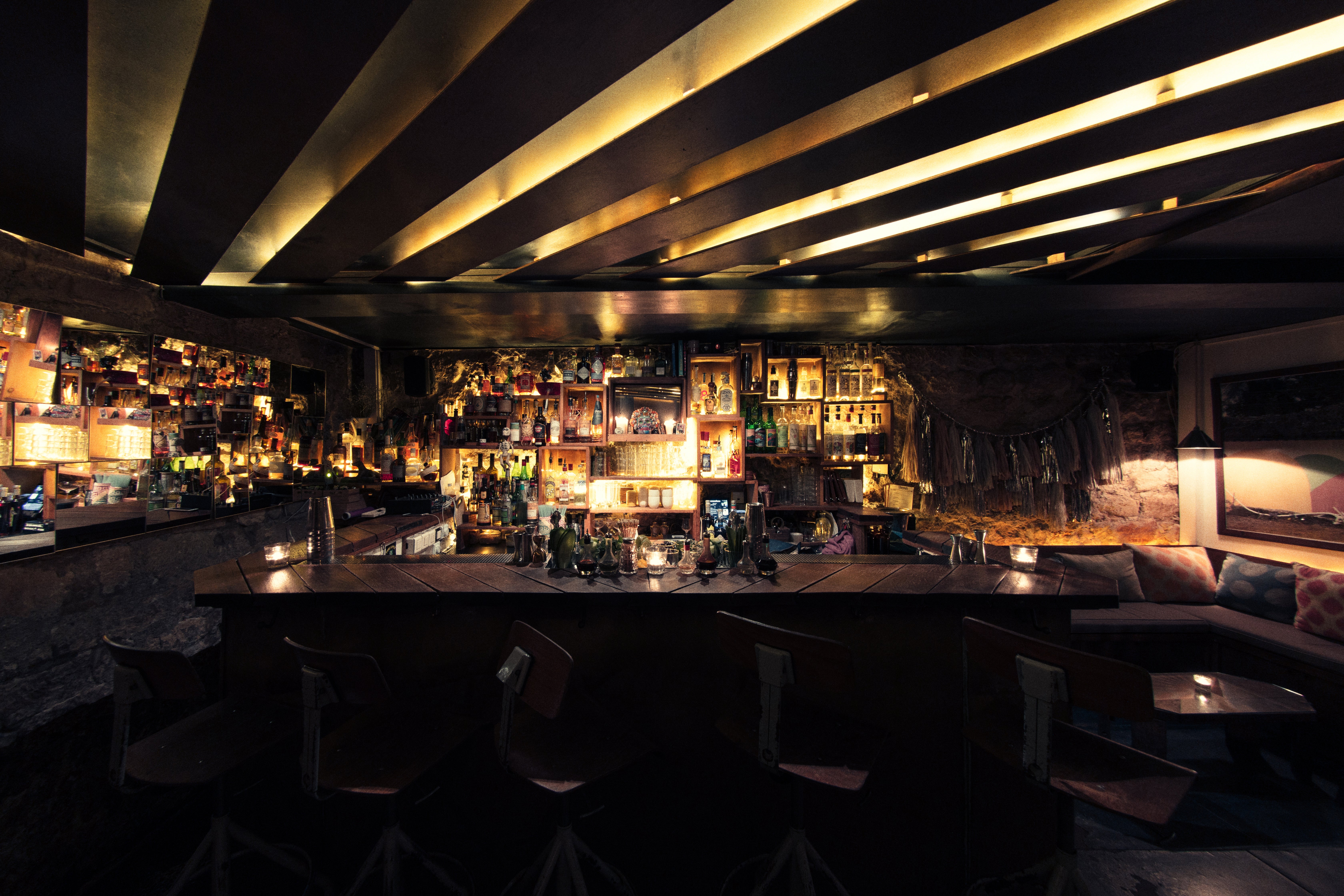The first time Sacha Lord tried entering Manchester’s legendary Hacienda club, the bouncer took one look at the scrawny kid wearing dad’s shirt and tie and roundly told him where to go. Home.
A week later he returned wearing jeans and a tee, stepped inside and found his calling.
In those heady days of the 1980s the northern British city was Madchester, birthplace of UK rave culture and genre-defining artists the likes of Happy Mondays, Joy Division and The Stone Roses.
But the city was also grey, bleak and suffering economic impacts from the infamous miners’ strikes. Its burgeoning rave culture was one bright spot.
Life was different inside the clubs. “We were on the dance floor, arms in the air. The vibe just took us. It was a very, very inspirational moment,” Lord recalls of his first nights out. “Whether you were the postman, a doctor, a lawyer, unemployed or a student, everyone was there to worship the DJ.”
Within a short time, having eschewed university, he quit his retail job and started as a promotor, soon hosting nights at the Hacienda himself, and enjoying the mayhem of the moment. And there was a lot of mayhem.
“I’ve been shot at twice, I’ve been petrol-bombed, dragged into a car by gangsters. We had an armed robbery that nicked £130,000 in cash.” He has enough stories from this era to write a book – in fact he has: Tales from the Dancefloor, hitting shelves in 2024.
Yet nothing could dampen his enthusiasm for hospitality and the nighttime economy. He co-founded the Warehouse Project in 2006, a series of club nights for greater Manchester, then Parklife, today the UK’s largest metropolitan music festival.
Between clubs, festivals, and hospitality, his was the ideal resume to become Greater Manchester’s first nighttime economy adviser to the mayor in 2018, a role he approaches with care and relish.
Covid occurred early in his watch, the economic impact hitting regional cities hard. Lord sprung into action, and hasn’t stopped since. Following the lead of then-Berlin Club Commissioner Lutz Leichsenring, he put a DJ into an empty theatre and turned on a livestream, reaching 20 million viewers over 10 weeks, and raising £612,000 for workers excluded from government relief.
Tackling tax, and tips
Three years since, the nighttime economy is still spluttering back to life. Adjusted for inflation, the sector has seen no real growth in turnover during that time, despite a rise in consumer spending, according to the Night Time Industries Association.
With the cost of living and running a business also soaring, Lord has taken to the airwaves, industry panels and social media to highlight the plight. One solution he argues is to reduce VAT from 20% to 12.5%, an approach that worked during the pandemic.
He cites a small pub owner from Greater Manchester paying £400 a day for utility bills. “It’s unsustainable. There was a moment last year when in chip shops, the oil in the fat fryer was more expensive than petrol. And you can only put your prices up to a certain point before the public say you're taking the piss.”
His advocacy touches on employers and employees alike. In a recent case, fed up not knowing whether customer gratuities were actually given to the hardworking restaurant and bar staff, Lord took up the cause. The result is a new law from September 2024 that states employers must pass on 100 percent of tips to workers without any deductions.
Mental health in mind
Aside from economics, wellbeing too is part of his agenda, no small matter in a sector synonymous with late nights and alcohol. “You've got people behind the bar being screamed at ‘Serve me next!’ and that is not a pleasant experience. In winter it is possible you don't see daylight because you sleep during the day,” he says. “I think we need to have a much bigger conversation about people's mental health in the sector.”
For future generations entering the workforce, Lord wants greater incentives to consider hospitality a serious career, using his own journey as an example.
“The sector is more exciting than any other, and you don't need to go to university to succeed in this.” He remembers the anxiety he felt watching friends graduate to become lawyers and doctors, while he worked in a clothes shop after school.
“If you'd said to me then, ‘You're going to co-found the biggest nightclub in the world, co-found the biggest metropolitan festival in the UK, and be first adviser for the night time economy’, I'd be like ‘You're off your rocker. That's impossible.’ And that proves there's no barrier in the sector.”









